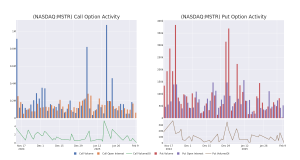The Vanguard Group this week whacked fees on 168 mutual fund and ETF share classes across 87 funds, lowering its expense ratios by an average of 20%.
It’s the largest annual expense ratio reduction in Vanguard’s nearly 50-year history.
The result: Its average asset-weighted expense ratio is now 0.07% — a fraction of the industry average of 0.44%.
“Fee cuts are always a positive sign,” Daniel Sotiroff, a senior research analyst at Morningstar, told Yahoo Finance. “The impact for Vanguard’s investors is positive, but it isn’t going to be huge, largely because its fees are already really low.”
Some of the funds on the Vanguard slash list include: Russell 1000 Value ETF (VONV), down to 0.07% from 0.08%; International High Dividend Yield ETF (VYMI), down to 0.17% from 0.22%; Total Bond Market Index Fund (VBTLX), down to 0.04% from 0.05%; Emerging Markets Government Bond ETF (VWOB), down to 0.15% from 0.20%; and Vanguard Dividend Appreciation ETF (VYM), down to 0.05% from 0.06%.
To really understand why you should care about reduced fees — even by fractions of a point — you need to know what a low expense ratio actually means.
“Vanguard’s fee cuts are a win for retail investors — you and me — helping to boost long-term returns,” said Mark Johnson, an investments and portfolio management professor at Wake Forest University. “In today’s market, expense ratios under 0.10% (10 basis points) are considered low, and Vanguard’s announcement aligns with founder Jack Bogle’s philosophy of maximizing returns by minimizing costs.”
Read more: How to start investing: A 6-step guide
That clearly remains the company’s mission: “At Vanguard, we’re focused on creating value for our investors, not extracting value from them,” Salim Ramji, Vanguard’s CEO, said in a press release.
I’d be remiss not to mention that this massive fee cut comes on the heels of Vanguard agreeing to pay more than $106 million to the Securities and Exchange Commission “for misleading statements related to capital gains distributions and tax consequences for retail investors who held Vanguard Investor Target Retirement Funds (Investor TRFs) in taxable accounts,” according to an SEC order.
The blow to Vanguard’s revenue from the new expense ratio cuts — estimated to be about $350 million this year — is the bigger thing that matters in my opinion.
“It shows that Vanguard is willing to give up a pretty substantial amount of revenue this year, and in future years, for the betterment of its clients,” Sotiroff said.
Moreover, you could see some fee competition kick up.



